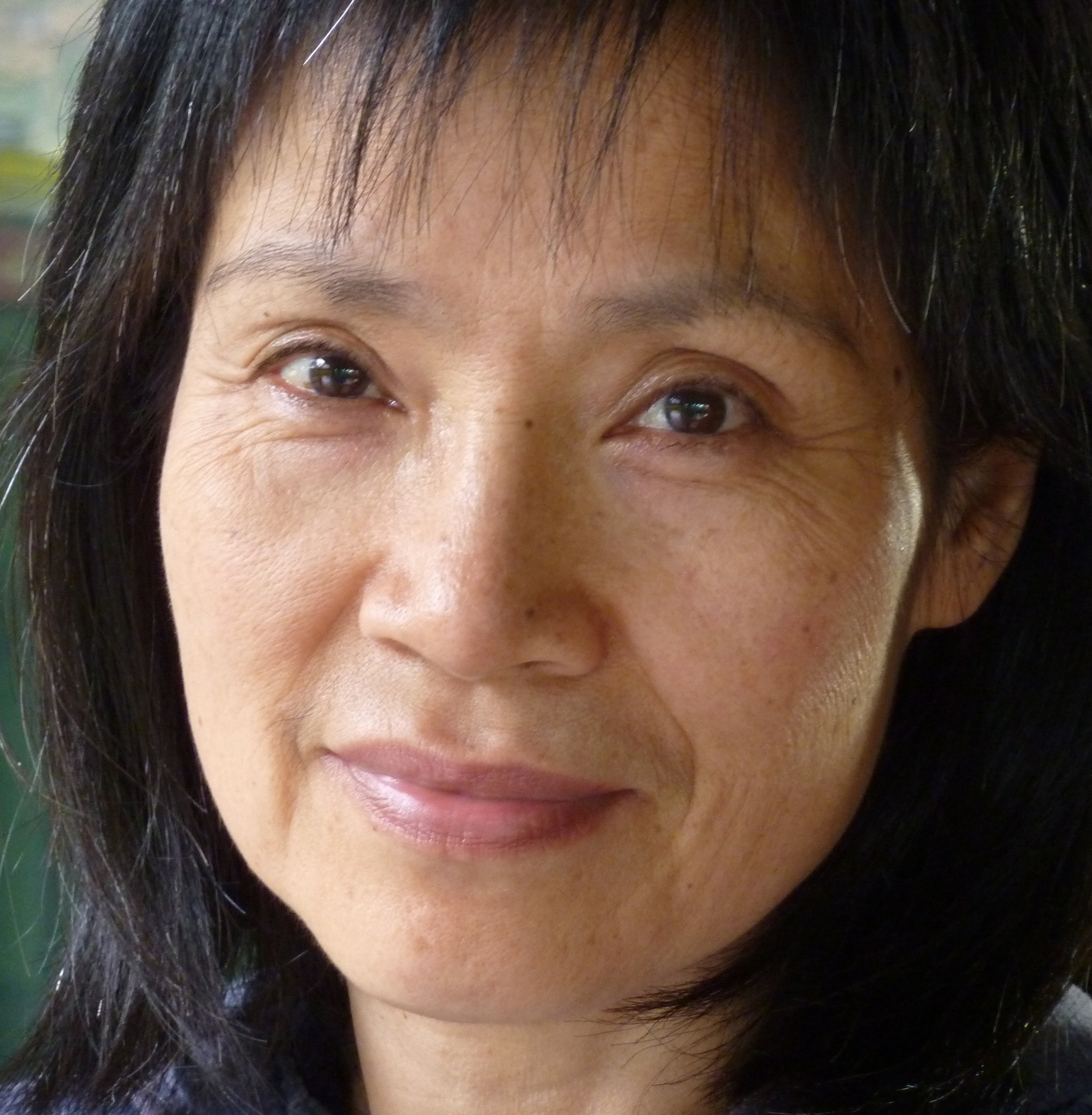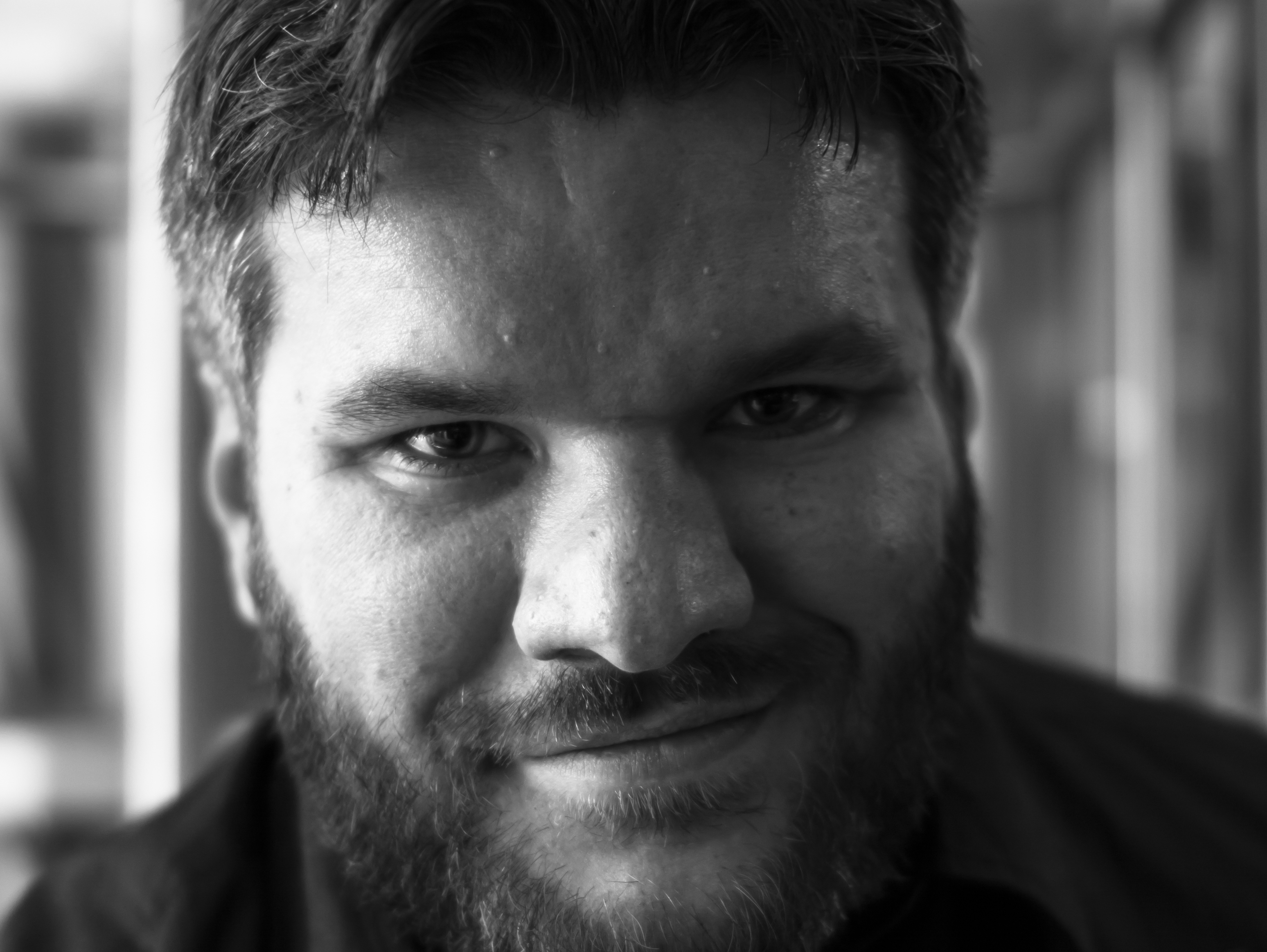Periel Aschenbrand is most recently the author of On My Knees. She previously appeared on The Bat Segundo Show #7.
Listen: Play in new window | Download
Author: Periel Aschenbrand
Subjects Discussed: Borough biases, romantic attachments to Manhattan, on “knowing everything,” Ulysses, being introduced to Philip Roth as a “great writer,” when major writers put cherries in your mouth, courtesy and thank you notes, how to deal with compromise in life, going after what you want, risking everything to achieve, the importance of failure, not being qualified to do many things, Body as Billboard, House of Exposure, Aschenbrand writing more about the personal than the professional, The Only Bush I Trust is My Own, motivations to write, apartment battles, Aschenbrand as a “self-filling glass of water,” when new books are contingent upon life experience, approaching the act of writing almost exclusively through the self, crime novels, paranoia, being obsessed with Law and Order, Faye and Jonathan Kellerman, serial killer documentaries, Sara Paretsky’s V.I. Warshawki novels, the problems with reading while pregnant, Jeffrey Dahmer, going to extreme positions to keep yourself alive, James Baldwin, writing what you know, standup comedy, safeguards against excessive solipsism, entering a morgue or a crime lab, efforts to persuade Aschenbrand to visit a morgue, transgressive behavior, long walks and journalism, live poultry markets, killing chickens, cutting techniques, persona lines, participating in acts that you write about, jumping out of airplanes, obsessiveness and interest, Aschenbrand’s suspicion of doctors, dental hygienists who may have killed spouses, thoughts on justifiable homicide, hiring private investigators, blind trust and therapists, degrees of risk with medical professionals, being an insider and an outsider, the impossibility of a full-bore outsider, the benefits of locking yourself in a room, pretending to be your grandmother to get a good rental deal, living in a high-floor walk-up, emerging from the wreckage of a bad breakup, Stuyvesant Town, the allure of the East Village, Aschenbrand’s massive throne-like couch, objects to project family history upon, narcissism and furniture, avoiding the safe lives that family members live, demonizing relatives in a book, grief, changing material in books to placate lawyers, loathsome behavior, considering other people’s feelings in a memoir, revealing details, empathy and forgiveness, avoiding malicious intent, finding humor in yourself, the romance of being written about, taking notes in front of people, Mikhail Baryshnikov, judging people as a genetic legacy, Aschenbrand’s gender assumptions, and responding to Aschenbrand’s claim that straight male professionals are incapable of not thinking about blowjobs when talking with women.
EXCERPT FROM SHOW:
Correspondent: This is a rare case where someone who was in the first ten shows comes back seven or eight years later and is now here in the flesh. But we’re much different people, I think.
Aschenbrand: Um, yeah. I would imagine so.
Correspondent: How have you changed? For people who are not privy to your developments. Obviously, you’re expecting, I see.
Aschenbrand: I am expecting. So that’s a huge difference.
Correspondent: But you’ve always been expecting in some sense, I think.
Aschenbrand: (laughs) Expecting something, right? Always expecting something. In terms of the book or in terms of me personally or both?
Correspondent: Whatever, whatever. The nice thing is that there’s a lot of latitude here in terms of what we talk about.
Aschenbrand: Yeah. Well, I think that I have…the wisdom of experience maybe behind me. Which is to say that I would have done everything exactly the same.
Correspondent: No regrets. We’ll talk about this. Okay, so let’s get into the book. You say that, from a very early age, you knew that you were in the wrong borough.
Aschenbrand: Yes.
Correspondent: You also write that the last thing in the world you wanted to do was move to Brooklyn. You even say, “I hadn’t clawed my way out of one outer borough to move to another.” I have to ask. Speaking as a loyal Brooklynite, what’s so bad about Queens and Brooklyn? Why are you dissatisfied with the way you grew up? Why should Manhattan matter so much?
Aschenbrand: Well, I think I’ll probably enrage a lot of my friends — most of whom live in Brooklyn. I think that there really is something to the magic of Manhattan, especially when you grow up in Queens. And you see things are extremely different on the other side of the bridge. It’s where it all happens. I mean, it’s like — that’s where I saw, you know, the drag queens at Patricia Field transforming at, like, age 14. I mean, it’s where you see the nightlife and the skyline, which is still exciting to see every time I land here. Even after a hundred million times of seeing it.
Correspondent: But the skyline is not necessarily borough-specific.
Aschenbrand: No. It’s the skyline of Manhattan. Specifically the skyline of Manhattan. I don’t know. I think that there’s a magic to it. Anything is possible. I mean, I still think anything is possible here. I mean, if I was able to get out of Queens, anything is possible.
Correspondent: So wait. Anything is possible even though Manhattan is widely considered by many to be a playground for the rich?
Aschenbrand: Well, now, yeah. I think I still have that sort of nostalgia for what it used to be or the sort of love, the same love that I had for it when I was a kid, sort of wide-eyed and starry-eyed for it. I think Manhattan has changed a lot and not necessarily in great ways.
Correspondent: So you’re operating off of a sense of Manhattan, as opposed to…
Aschenbrand: I mean, I think it represents something. I mean, it’s a conceptual thing. I can obviously recognize it. There are beautiful parts of Brooklyn. And it’s a lovely place to live than all of those things. But for somebody who grew up in Queens and spent her entire childhood dying to get the fuck out of there, you know, when people from like Wisconsin come and start talking about how amazing Brooklyn is, it’s a little bit difficult for me to get on that ship.
Correspondent: Oh really? So actually, you’re courting some jealousy perhaps towards my lovely borough, I must say.
Aschenbrand: No!
Correspondent: It’s a little more welcoming. You can walk anywhere in a four mile range and be in a totally different neighborhood. Whereas there are wide swaths of Manhattan, especially the Upper East Side, where it’s the same thing for a long while. Until you actually get to the cool stuff that’s at about 100th. You know what I mean?
Aschenbrand: No. I think Park Slope is like the Upper West Side at this point.
Correspondent: There are some dives in Park Slope. The South Slope.
Aschenbrand: There are some dives on the Upper West Side.
Correspondent: Still.
Aschenbrand: I don’t hang out on the Upper West Side. I have no idea what’s going on in the Upper West Side. But I think that this romantic notion of the boroughs is as probably as ridiculous as my romantic notion of Manhattan. And I think that’s really what it comes down to me. To hear, like, Brooklyn and Astoria being lauded as these like amazing places — well, very well. It may be the case. It’s really hard for me to wrap my head around.
Correspondent: You’re not tendentious or anything.
Aschenbrand: (laughs)
Correspondent: Okay. So you write that you thought you knew everything at the age of twenty-two. How have you curbed yourself of this impulse in the subsequent years? I mean, how do you contend with sometimes not knowing anything?
Aschenbrand: Now I’m sure. At 37, I’m sure I know everything. Just kidding.
Correspondent: I’ll start quizzing you on Ulysses.
Aschenbrand: (laughs)
Correspondent: Ineluctable modality of the….?
Aschenbrand: (silence)
Correspondent: Okay.
Aschenbrand: Sorry. I totally missed that. I think that I take with a grain…I mean, I think it’s a good thing to recognize that there’s a lot that you don’t know. But I also think that that sort of self-assuredness and hopefully not too much arrogance, but maybe a little bit at that younger age, really helped me. I mean, I think it served me well. I think I had a good enough head on my shoulders not to think that and be a complete idiot. I think that it’s very possible to think that you know everything and also just be really a moron. Maybe I’ve become a lot more humble in my old age. (laughs)
Correspondent: Really? Even though you were introduced to Philip Roth as “a great writer” and you have to unfortunately shake off this regrettable notion. Being told that you’re a great writer to an indisputedly great writer.
Aschenbrand: Well, he didn’t say I was a great writer.
Correspondent: But you didn’t exactly talk yourself out of that after the mutual friend…
Aschenbrand: Well, why would I? (laughs)
Correspondent: If someone had introduced me to Philip Roth, and even if I was a woman or what not, I would say, “You know, they’re just kind of talking me up a little bit. I know. You’re The Man.” (laughs) At least that would be me. But you didn’t. You did not disavow yourself.
Aschenbrand: Absolutely! No fucking way!
Correspondent: Why? You’re on the level of Philip Roth?
Aschenbrand: No, I don’t think so at all. But I don’t think that those things are mutually exclusive. I don’t think that I can’t be really good at something that he is. I mean, I don’t think that you can compare — I mean, I would say “better.” But it’s ridiculous. Like he’s Philip Roth, you know? But that doesn’t mean that I can’t also be a great writer in my work, you know? I don’t. I don’t think that those things are mutually exclusive at all. You know, I don’t think that I myself would ever articulate it like that. I think that I’m proud of my work and I stand behind it. And I think that I’m pretty fucking good at what I do. So, I mean, why should I not own that? Especially if I’m being introduced to him!
Correspondent: Well, why actually ascribe a modifier like “great” to yourself?
Aschenbrand: I didn’t.
Correspondent: Or at least play up that? Gatsby thought he was great, or was thought to be great.
Aschenbrand: Well, he was right.
Correspondent: So that very much is how you operate? That you need to put yourself at a high echelon in order to…
Aschenbrand: I didn’t put myself there. I did not…
Correspondent: Even though you said that you knew everything and that you’re still sort of abiding by that even now.
Aschenbrand: No. I said that, at 22, I thought I knew everything and that I’d become much more humble in my old age and that if somebody is going to give me a compliment, which is how I was introduced to Roth, I’m going to say thank you and accept that compliment and not deflect it. And, again, I stand by my work. And I would never in a million years introduce myself as a great anything to anyone. Like, I think my work stands for itself. And if somebody wants to laud it, like I am graciously accepting of that compliment.
Correspondent: But after The Man put cherries into your mouth, you then sent him a huge crate of cherries. And you expected him to reply. You did not get a reply.
Aschenbrand: Correct.
Correspondent: And you waited weeks and weeks and weeks…
Aschenbrand: Correct.
Correspondent: …for this particular…
Aschenbrand: Years at this point.
Correspondent: Years.
Aschenbrand: I’m still waiting.
Correspondent: So I guess you and I have to figure out how he can actually reply. What do you expect? Just a thank you note? Or something more?
Aschenbrand: Yeah, I did.
Correspondent: Okay.
Aschenbrand: That was it. Just a small, like, acknowledgment. I mean, the same way that I would expect it from any other human being in the world.
Correspondent: So if you sent a big crate of cherries to the White House, you would expect a thank you note from Obama?
Aschenbrand: If he had been feeding me cherries the week before? Yeah.
Correspondent: Oh, I see.
Aschenbrand: I would.
Correspodnent: So because there was the actual feeding of the cherries and there’s this continuity, you wanted resolution on the cherry feeding.
Aschenbrand: No. I just think it’s a normal thing to do. I mean, I didn’t like ingratiate myself to him. He asked me to sit down. I mean, we were introduced by a mutual friend. It’s not like I’m some weird fan who like showed up at his house. As said in the book, you know, I actually was not familiar. The onus is on — that was my bad. And I take full responsibility for that. But, yeah, it’s normal. Like I don’t care who you are. If you’re Barack Obama or Philip Roth, like we had dinner, like I sent you something, it’s a normal thing to do to say thank you.
Correspondent: In fact, I’ve had this discussion recently with another writer about how thank you notes are starting to decline in our society. Even by email, people don’t say thank you anymore. What do you think of that? I mean, is this a way of upholding a set of dying virtues? Or is this emphatic need for a thank you note a way of carrying on a tradition, would you say?
Aschenbrand: I always send a thank you note. In the mail. So I don’t know. Maybe I’m more old-fashioned than I give off.
(Loops for this program provided by Danke.)
(Photo: George Ruhe)
The Bat Segundo Show #505: Periel Aschenbrand (Download MP3)
This text will be replaced




